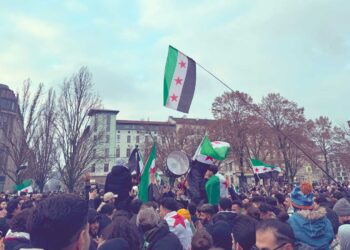Following the detention of Istanbul Mayor Ekrem İmamoğlu on 19 March 2025, huge mass protests erupted across Turkey. These protests spanned not only Istanbul and Ankara but several other cities that had not previously been associated with the country’s traditional street protest landscapes.
Since İmamoğlu’s arrest, considered by many as an excuse to eliminate yet another political opponent, the demonstrations immediately turned into protests against the President Recep Tayipp Erdoğan who has been in power in the country since 2002. The demonstrations were initiated by the main opposition party CHP (Republican People’s Party), led by Özgür Özel, who called on the public to gather in front of the Istanbul Municipality.
CHP quickly emerged as the central institutional actor of the protests. Understanding this aspect is crucial for analyzing the management of public space and the dynamics within the squares, as well as assessing participation. Unlike the autonomous spirit of the Gezi protests 12 years ago, the recent demonstrations are characterized by a narrative dominated by institutional politics, prominently voiced from the central stages.
New political actors
The prominence of the CHP, the longest-standing party in Turkey’s history, a Kemalist party rooted in a secularist and nationalist legacy, has also raised many questions within various political and institutional contexts regarding their decision to actively engage in the protests or how to stand and be present in the squares. This was also visible in the timid Kurdish open participation in the protests. While questioning taking to the streets with the CHP, they were also careful not to make any missteps against the new possibilities for agreements between Erdoğan government and Qandil.
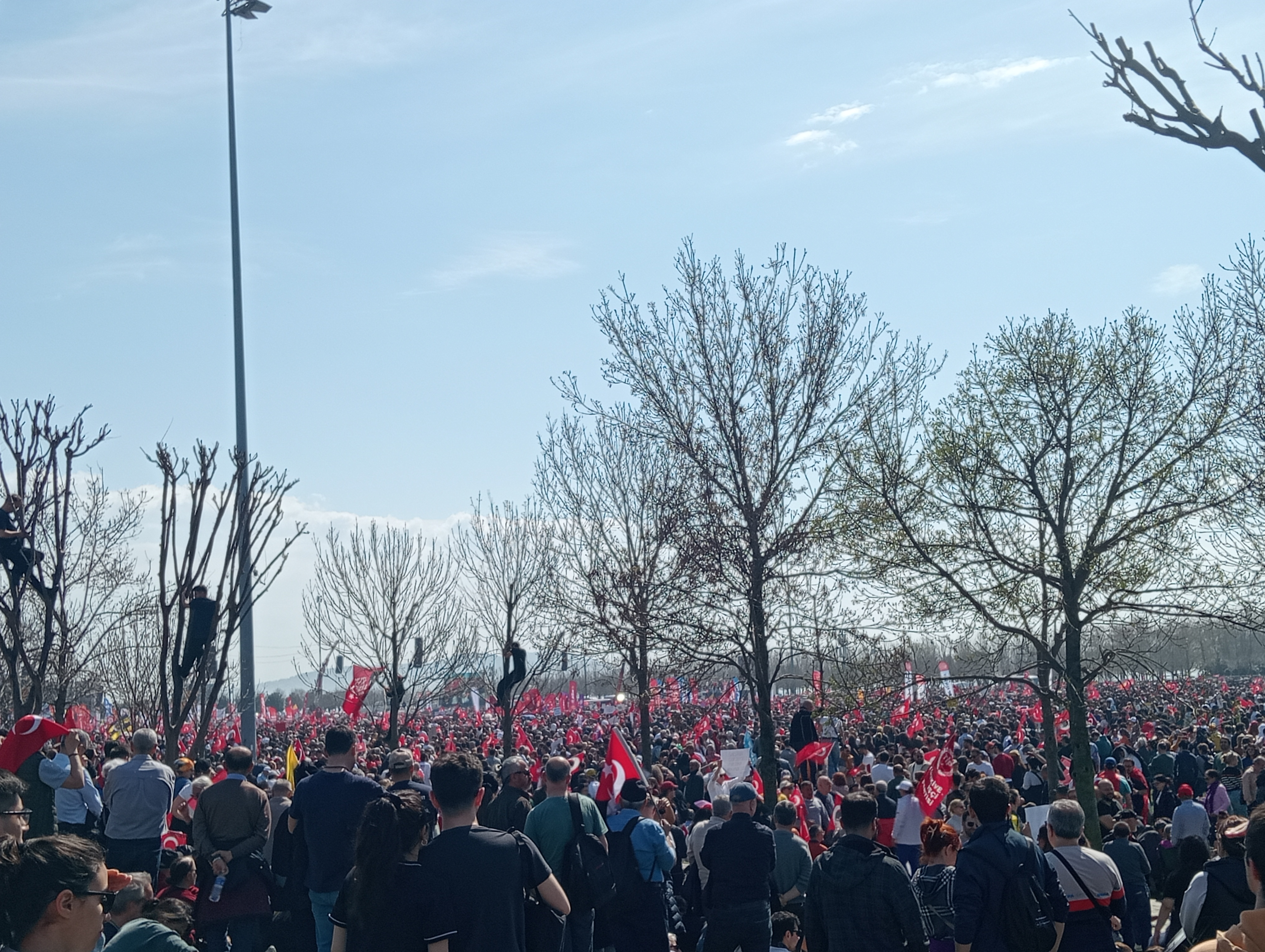
The political glue binding the squares and streets has indeed been the opposition to Erdoğan and his policies, the drastic reduction of freedom of expression and civil and democratic rights, as well as the rampant economic crisis. However, it has been evident from the outset that the hierarchical structure of the debate established by the CHP has made many political realities uncomfortable, as they do not identify with its policies yet gradually join the wave of demonstrations. Therefore, despite increasing participation in the demonstrations, estimated in the millions, it is rare to recognise new political narratives.
Though CHP is the main institutional actor, the new protagonists of the protests are in fact the youth, referred to as “Generation Z”. This generation was born and raised under the rule of the AKP and has likely borne the brunt of its socio-economic consequences. For most of them this is the first experience of mass protests, since after Gezi all demonstrations were denied, blocked or severely repressed.
University students brought to the demonstrations a previously unheard voice that appeals for rights, denounces a radically compromised economic situation especially for their age group, claims a total lack of future prospects, and emphasises the impossibility of finding alternatives inside and outside the country. It is also the students who have defended their universities from police entry and taken an active part in the streets. They are therefore also the ones who have paid the highest price for police violence and repression.
Intensifying repression
The protests were met with police brutality, including widespread use of tear gas, water cannons, and rubber bullets to disperse demonstrators. Human rights groups have reported hundreds of arbitrary detentions, with many protestors, facing charges related to “public disorder” and “terror propaganda” highlighting concerns over press freedom and democratic backsliding in the country.
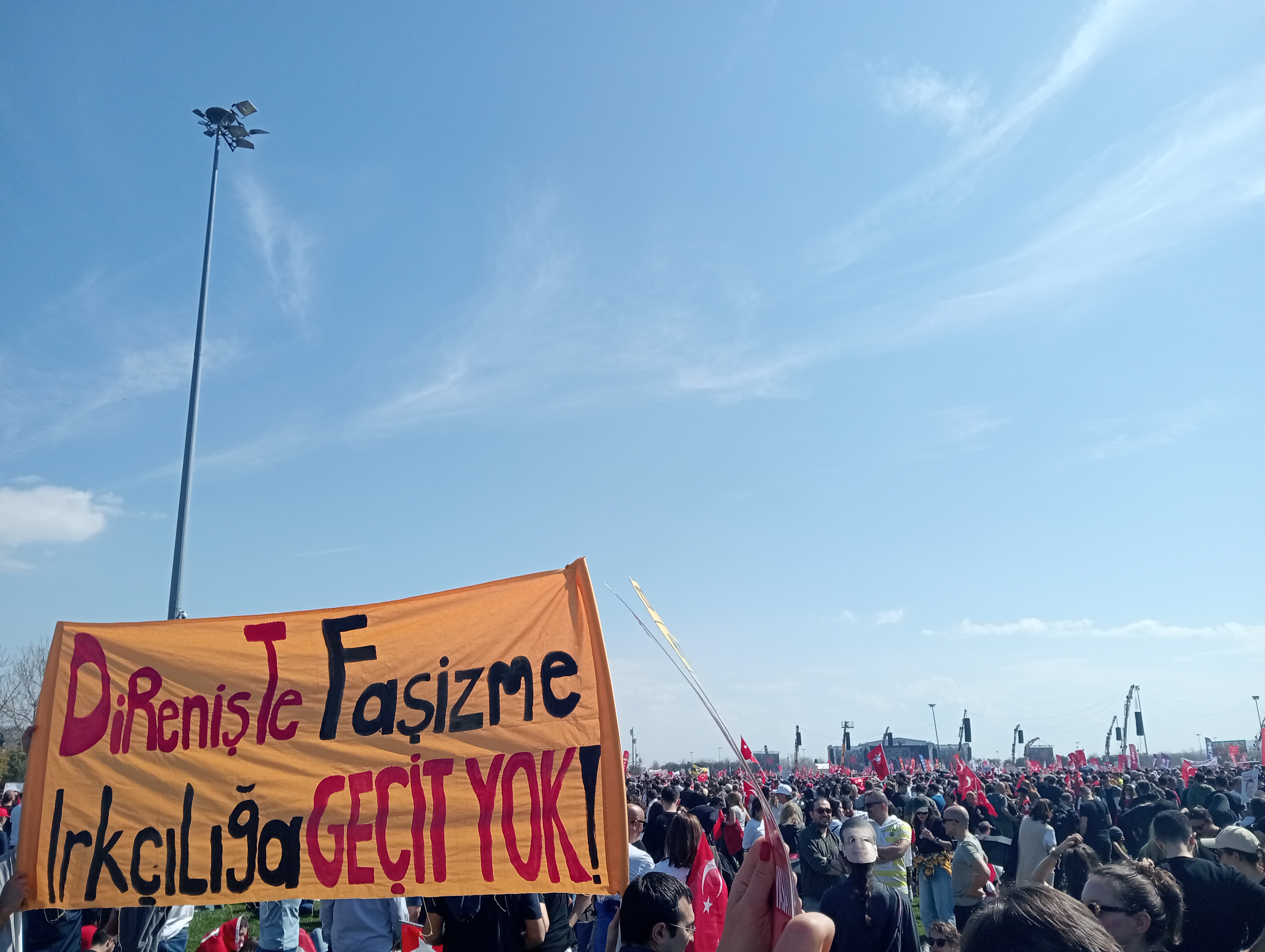
As of 27 March, nearly 1,900 people have been detained. The government’s aggressive crackdown reflects a broader pattern of escalating repression in response to growing dissent. Many cases of detention are linked to ideas shared on social media, which were initially blocked throughout the country to prevent the dissemination of information. There are other clear signs that the government will implement more oppressive policies in the long-term. Turkey’s General Directorate of Security has launched a public tender to purchase 13,000 facial recognition cameras, along with related equipment, as part of a large-scale surveillance system.
These repressive actions are not new in Turkey. The shape of today’s protests, and the presence or absence of various actors, reflects twelve years (since the last wave of mass demonstrations) of systematic dismantling of opposition groups and civil society organizations.
The intensified crackdown on academia, journalism, the arts, and grassroots activism has driven many to leave the country, while those who remained have faced severe consequences for their engagement. This has had a profound impact on the capacity and willingness of non-institutional political actors to mobilize and participate in protest movements.
The new Kurdish question
The political shock triggered by Ekrem İmamoğlu’s arrest cannot be separated from the unresolved Kurdish question and the broader regional dynamics that have long influenced Turkey’s domestic and foreign policy. The most serious charge against İmamoğlu—terrorism—stems from his electoral alliance with the pro-Kurdish DEM Party during the 2024 local elections.
Domestically, Kurdish voters have assumed a kingmaker role in recent elections, increasingly aligning with opposition coalitions in defiance of the ruling bloc. This political leverage makes the Kurdish question both a risk and an opportunity for President Erdoğan. Erdoğan has long weaponized the label of “terrorism” to delegitimize political rivals. Before İmamoğlu’s arrest, pro-Kurdish opposition leader Selahattin Demirtaş was imprisoned on similar charges. Under Turkish law, if Imamoğlu is prosecuted and convicted on terrorism-related charges, the state is authorized to appoint a trustee to replace the elected mayor.
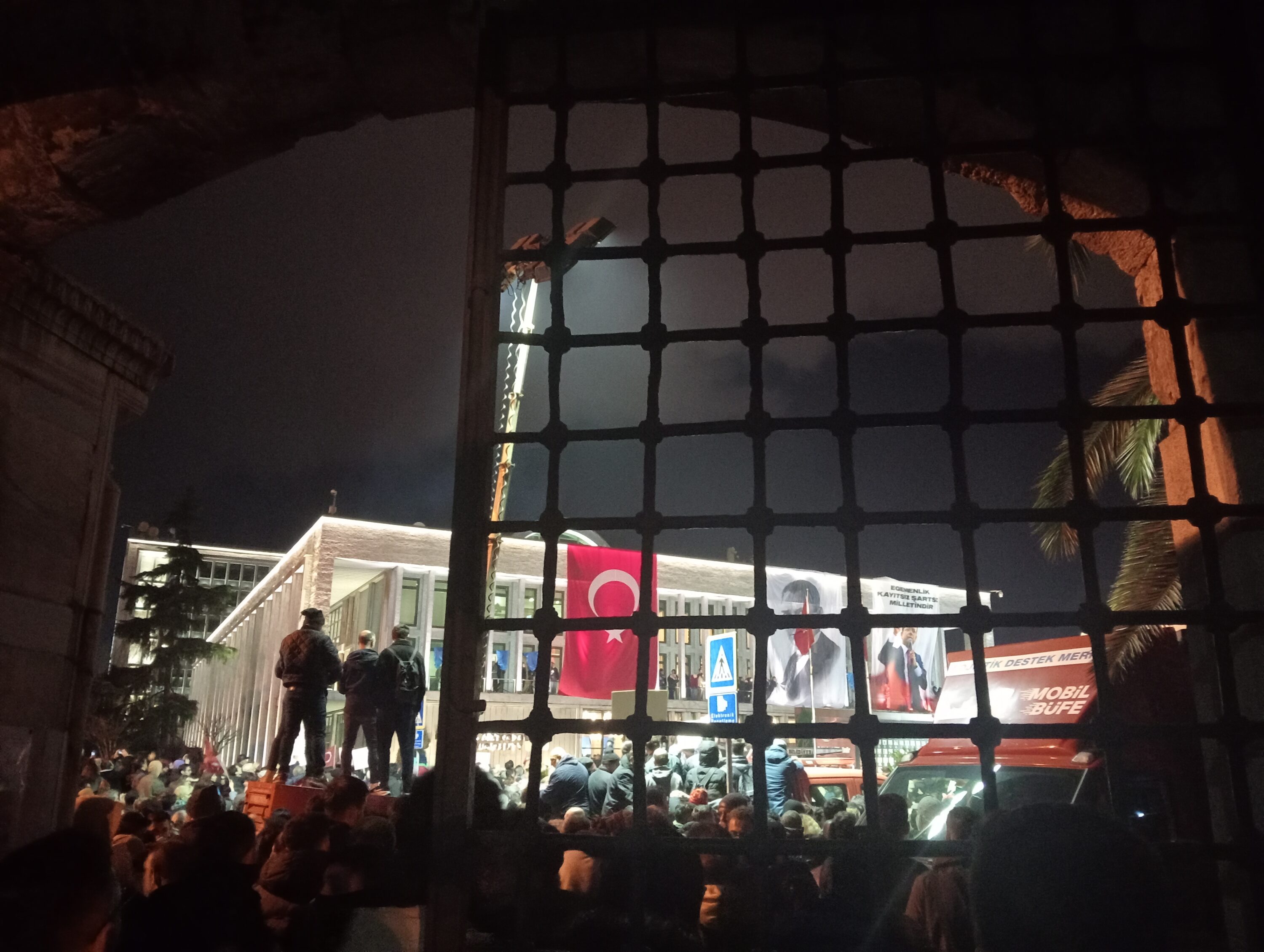
The contradiction in Erdoğan’s domestic and foreign policy became visible in October 2024. Devlet Bahçeli, leader of the far-right Nationalist Movement Party (MHP) and Erdoğan’s key coalition partner, unexpectedly referenced Abdullah Öcalan, the imprisoned leader of the Kurdistan Workers’ Party (PKK). Bahçeli’s remarks hinted at undisclosed backchannel negotiations. His intervention was not a call for reconciliation, but a strategic signal.
The release of a statement from Öcalan in February 2025, calling for the PKK to lay down arms and dissolve itself, added another layer of ambiguity. This was followed by a declaration of ceasefire from the PKK. Though its implications remain unclear, the timing and context suggest it was less about reconciliation and more about manipulating political currents within the region.
Regional dynamics
Simultaneously, other developments in the region have opened space for the Erdoğan government to reposition Kurdish actors, not solely as enemies, but as potential allies in a new regional order. Following the fall of Bashar al-Assad in Syria, Turkey seeks not only to maintain its military presence in northern Syria and preserve its political influence over the newly established al-Sharaa government, but also to assert control over Syrian airspace and participate in the formation of a new national military.
At the beginning of the year, Erdoğan maintained a firm stance against the Autonomous Kurdish region in Syria, continuing military incursions and emphasizing the need for unity within the country. However, the geopolitical landscape evolved significantly following Donald Trump’s presidency, the Alawite massacres in Syria’s coastal region and growing confrontation between Israel over influence in Syria. Erdoğan has since recognized that his objectives in Syria are closely tied to the success of the newly established Al-Sharaa government and other actors in the region.
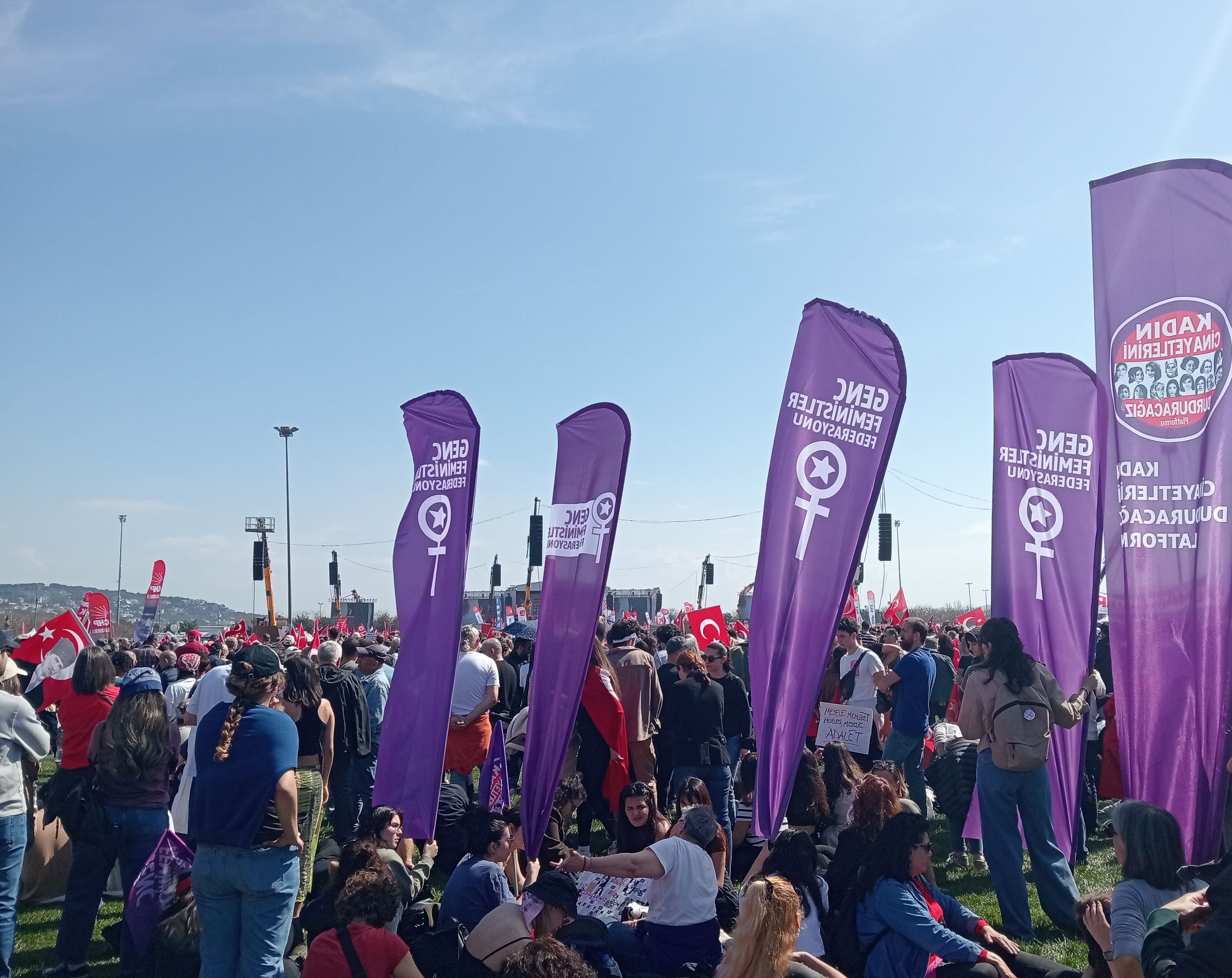
Erdoğan welcomed the agreement reached between the Syrian Democratic Forces (SDF) and the Syrian government on March 10 as a significant step toward the integration of the Autonomous Administration of Rojava with Damascus. These developments have further altered the Turkish government’s perception of the Kurdish forces, increasingly viewing them as potential allies in the evolving regional order.
An important dynamic in the region became undeniable with Israel’s airstrikes on military bases in Syria. This was followed by a meeting between Trump and Netanyahu, which marked the beginning of efforts to reduce tensions between Turkey and Israel. Subsequent deconfliction talks were held with Azerbaijan acting as host.
This political maneuvers reveals a broader transformation. The Kurdish question, once rooted in debates about democracy and consolidation, has been reframed by the Erdoğan government as a foreign policy problem situated in the realm of military strategy and regional alliances. While Kurdish politicians and their allies are criminalized and imprisoned under terrorism charges within Turkey, forming alliances with Kurdish actors abroad has become politically acceptable.
This situation underscores a growing divergence between domestic and foreign policy. Increase in authoritarianism at home while seeking diplomatic solutions within the region. The shift also reflects a broader decoupling of two historically intertwined issues: the Kurdish question and the crisis of democracy, suggesting that one can be addressed while the other remains unresolved.
What lies ahead?
On 26 March, President Erdoğan signaled an expansion of investigations into the Istanbul Metropolitan Municipality (İBB), alleging extensive corruption. He criticized CHP leader Özgür Özel and the party for attempting to incite chaos and downplaying the severity of the alleged misconduct. He declared: “From now on, every act of sabotage against the Turkish economy will be held accountable before the judiciary”.
These statements are part of an already highly compromised climate of repression. Indeed, during these weeks it became clear that the government was using the mere participation in the protests as an excuse to implement another wave of detentions.
Meanwhile, Erdoğan has been expressing his desire to replace Turkey’s current constitution with a new one, a move seen as a strategic effort to bypass term limits that would otherwise bar him from running for president again. Beyond extending his political tenure, many fear the proposed change would further entrench the one-man rule, erode the remaining checks on executive power and institutionalize authoritarian rule. A growing number of Turkish citizens fear the country is heading toward a fundamental regime change, one that threatens to dismantle secularism, curtail personal freedoms, and consolidate unchecked presidential power.
The protests went from being daily to being called by the CHP once a week, and are now over. In the following weeks, independent forums open to the population are called to discuss the state of protests and repression and to elaborate new strategies of bottom-up organisations. Boycotts have also been called against numerous brands and companies directly connected to the government while trade unions and opposition parties are being asked to call a general strike.
All this in a climate of strong and widespread concern for personal and collective freedom, where confidence for positive change has to reckon with disillusionment over the very high price paid in previous mass protests, and where everyone’s real hope is in the youth.






